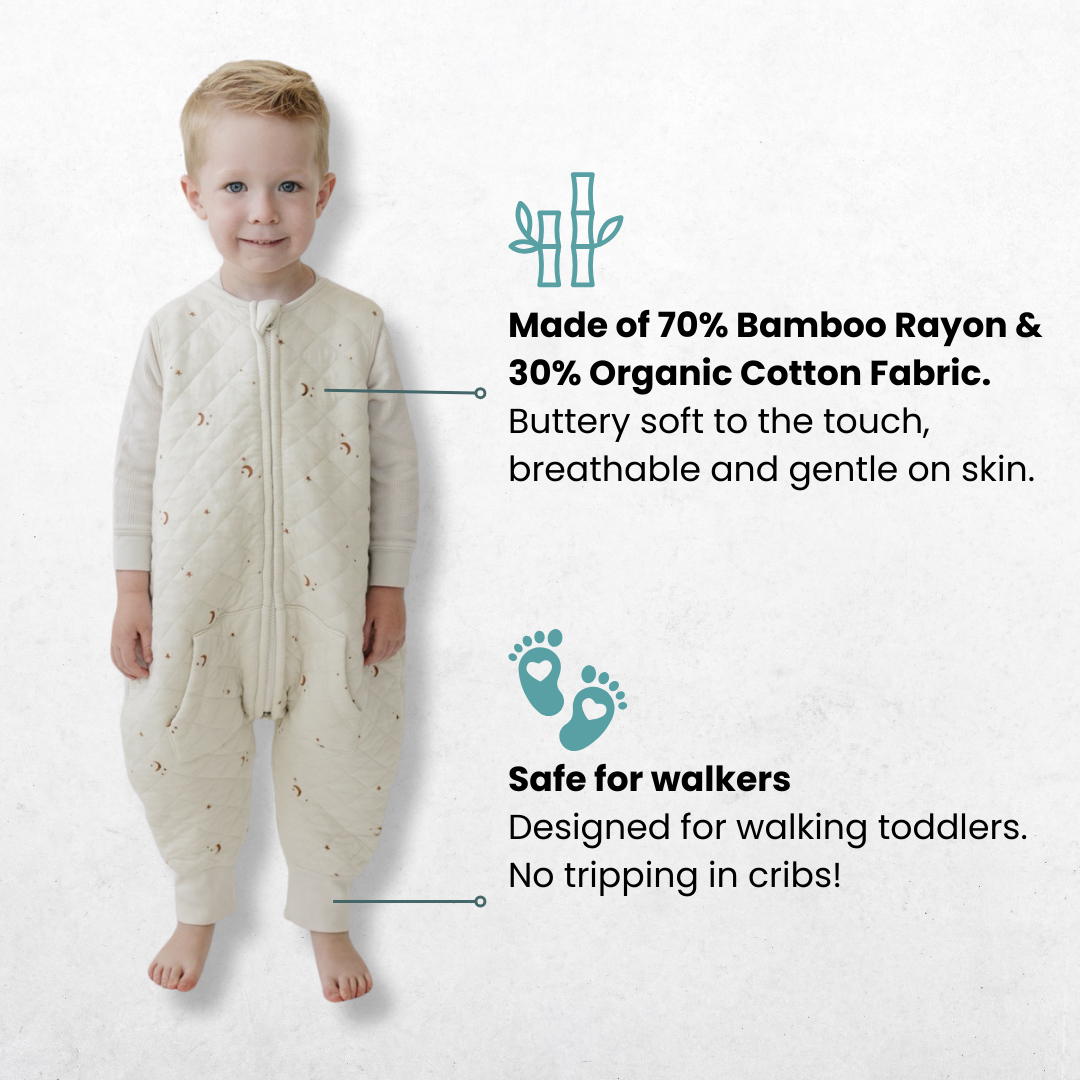Baby's First Month Sleep Schedule and Feeding Guidance
First few days and weeks with the newborn baby can be an overwhelming time to moms. Adjusting to the new life with a newborn baby who constantly seems to wake up and needing to be fed every 2 - 3 hours seems tiring.
But knowing that the baby can have somewhat of a structured day will help you get through each day until you have more of an established routine with the baby. According to "On Becoming Babywise" book, baby can already show development in night time sleep during their 3-5 weeks.
In this post, we wanted to share some tips on managing your first few weeks with your newborn and what to expect when it comes to sleep.

Baby's First Month Sleep Schedule and Feeding Guidance
Few Tips on the First Month With the Baby
- Babies should be fed every 2.5-3 hours
- Feed 8-10 times during 24 hour span
- Naps should be around 1.5-2.5 hours long each time
- Let the baby sleep and don't make them overtired as overtired babies have more difficulties settling down for sleep
- It's okay to wake the baby up for feeding to maintain the routine
- Growth spurt may happen during 3-4 week period
Week 1-2
Babies will want to sleep most of the time during this period. And they don't have the ability to stay awake for a long period of time without being overtired so many babies will end up waking up to eat and going back to sleep. It might just look like they eat, sleep, and eat, sleep with diaper changes in between, and that may be all they can handle. It's so tempting to want to interact with the baby longer when you have that window of their eyes open, but remember that newborns can be awake for about 30-45 minutes only.
Below is a sample sleep schedule for the first two weeks of baby's life based on having 2.5 hours in between feedings. Each cycle will start off with Feeding / Activities / Minimum Wake Time / Napping.
- 7:30am
- 9:30am
- 12pm
- 2:30pm
- 5pm
- 8pm
- 11pm
- 1:30 (Will be merged into 1 during Week 3-5)
- 4am (Will be merged into 1 during Week 3-5)
You don’t have to follow the same times as above – you can start the day at 8am or 6am, whichever works with your schedule better. If you stick to similar times for feedings and be consistent, the Babywise book mentions that the baby’s hunger cycle will begin to synchronize with these times. When that is established, the daytime naps will organize itself and the nighttime sleep will follow.
During this time, babies can take only up to 1-2 oz of milk, although babies' weight will determine how much milk they can intake. It is suggested that 2.5 oz of milk per day for every pound of baby's weight be given to the baby.
RELEVANT READ:
- Baby Sleep Schedule
- What I Learned Baby's 1st 6 Weeks
- Baby Sleep Facts
- Baby's Second Month Sleep Schedule & Feed Chart
Week 3-5
According to Becoming Babywise book, babies can begin to merge their night time feedings into one during this period. Their daytime nap/feeding schedule will stay somewhat similar but at night time, babies can stretch their sleep from 3 hours to 3.5-4 hours. Until this happens, babies will wake up two times at night time but those two wakings will merge into one. This will reduce the number of feedings to 8 from 9 feedings per day. But don't despair if your baby isn't sleeping longer at night! Many babies need more time to drop two wakings at night time to one.
Few things to remember when this happens:
- Try to keep the first and last feeding times to be consistent on a daily basis.
- Try to keep the baby on the E.A.S.Y routine – E.A.S.Y routine is explained in Tracy Hogg’s 'Secrets Of The Baby Whisperer’ as the following:
-
- Eat – Whether the baby is breastfed or bottle fed, this time is when the baby will drink milk
- Activity – This will include diaper changes, the baby staring outside the window, cooing, or getting a bath. It’s the time the baby will be up, aside from their ‘Eat’ activity above
- Sleep – This is the time when the baby takes a nap
- You – When the baby naps, this is the time for you! You take this time to recharge and rest until the next cycle begins.
- Many baby books recommend keeping the babies on the above routine, to help the baby learn how to fall asleep independently. However, when the baby is less than 3 months old, instead of keeping the baby on a rigid schedule and being stressed out when your day doesn’t go as scheduled, you will have to use flexibility and consistency to keep the EASY routine as much as possible. If EASY didn’t happen for one cycle, then try again next cycle. You would have to monitor how long the baby can stay awake without being overtired to make EASY work for you and start the healthy sleep habits of teaching them to fall asleep independently.
Also, overtired newborns will have much more difficult time falling asleep on their own than well rested babies. While we want to teach the babies to fall asleep on their own, there will be naps where the babies will need that extra help to fall asleep. At this newborn stage, sleep trumps everything. So if the baby is needing extra help to fall asleep, give the help to the baby and try the EASY method during the next cycle.
Hope this was helpful! Leave a comment below and share your experience with your baby during this first few weeks!
Sign up to our newsletter to get more sleep tips and latest updates on Tealbee products!

























